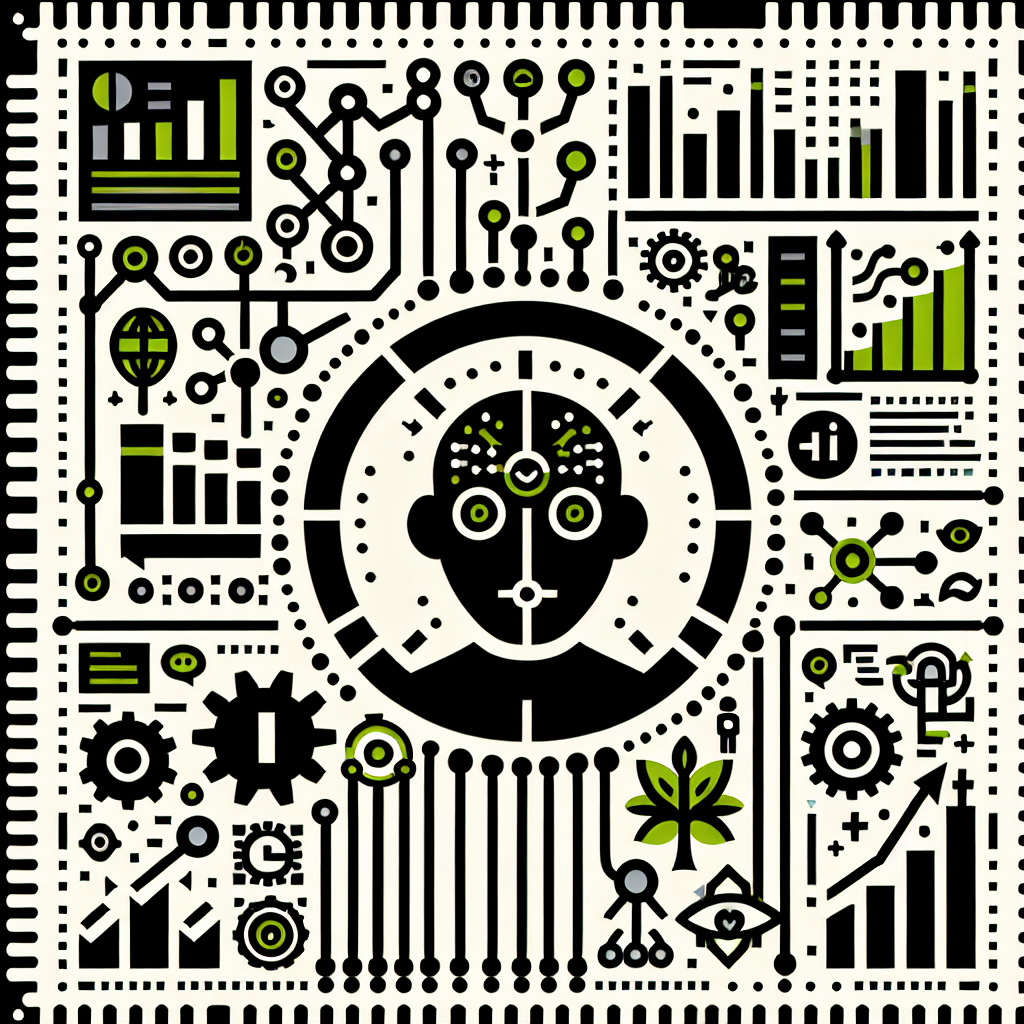Understanding the Concept of Ethical AI Use
What is Ethical AI Use?
Ethical AI use entails integrating ethical principles into the design, development, and deployment of Artificial Intelligence systems. It’s about ensuring that these technologies are use in a manner that promotes or respects human rights, individual freedoms, and social good.
Artificial Intelligence is increasingly shaping our lives, from jobs and education to healthcare and entertainment. However, improper use can result in violations of privacy, discrimination, and other harms. Ethical AI use helps to prevent such issues and ensure that the benefits of AI are shared equitably across the society.
The Importance of Utilizing AI Ethically
The ethical use of AI is essential to trust in these technologies. Misuses can not only harm individuals and communities, but can also undermine confidence in AI, stifering its potential benefits. Ethical use of AI also helps to limit legal and regulatory risks for organizations and to enhance their reputation.
AI has huge potential for benefiting society, from improving efficiency and accuracy of business processes to developing life-saving medical treatments. However, these benefits can only materialize if AI is used responsibly and in a manner that earns public trust.
Key Principles of Ethical AI Use
The ethics of AI use involve number of principles, such as fairness, accountability, transparency, and privacy. Fairness ensures the AI system does not discriminate or disadvantage certain individuals or groups. Accountability means those responsible for creating and deploying AI are answerable for its effects.
Transparency implies that AI systems and their decisions are understandable and explainable to humans. And Privacy entails respecting individuals’ personal data and ensuring it’s adequately protected. These principles recognize the potential of AI while also addressing its risks, helping to guide its ethical use.
Ethical AI Use in Influencer Marketing: An Overview
Definition of Influencer Marketing
Influencer marketing is a strategy that leverages influential individuals, typically on social media, to reach and engage a target audience. Influencers can be anyone from celebrities and industry experts to regular individuals with large, dedicated followers.
Marketers use influencers to promote their products, services, or brands, owing to influencers’ ability to shape opinions and trends among their followers. With the right influencer, businesses can dramatically increase their visibility and reach.
Role of AI in Influencer Marketing
AI can greatly enhance influencer marketing through capabilities such as data analysis, audience targeting, and performance tracking. It can identify the best influencers for a brand based on certain metrics, and predict which content will resonate most with particular audiences.
In addition, AI can detect fake followers or engagement, enabling marketers to invest their resources more wisely. AI can also analyze a campaign’s performance in real-time, offering insights that can inform future campaigns.
Ethical AI Use in Influencer Marketing: Why it Matters
Just as in other sectors, ethical AI use in influencer marketing is crucial. Without ethical use, marketers risk engaging in deceptive practices, undermining consumers’ trust, or infringing on customers’ privacy rights. Ethical AI use can prevent these issues while also enhancing the effectiveness of influencer marketing campaigns.
For instance, adherence to privacy principles ensures that customer data used for targeting is collected and processed responsibly. Transparency, on the other hand, boosts trust in the marketing process, thus potentially increasing engagement and conversions.
Balancing AI Innovation and Ethics in Influencer Marketing
Balancing AI innovations and ethics can be challenging but essential in influencer marketing. On one hand, marketers want to leverage the full potential of AI to optimize their campaigns. On the other hand, they need to do it in a way that respects ethical principles.
Adoption of technologies like AI, machine learning, and data analytics has revolutionized influencer marketing, leveraging vast amounts of data to optimize every aspect of a marketing campaign from selection of influencers to content creation and audience targeting. However, these advancements also raise numerous ethical issues requiring careful consideration.
Case Studies of Ethical AI Use in Influencer Marketing
Successful Use of Ethical AI in Influencer Marketing: Company A
To demonstrate the benefits of ethical AI use in influencer marketing, let’s examine company A. This company utilized advanced AI algorithms to analyse audience engagement and to select the right influencers. At the same time, they were very careful to ensure that all data was handled responsibly and used and stored in a way that met all regulatory standards.
By putting their ethical considerations first, company A was able to not only improve their ROI, but also cultivate a reputation for being a trustworthy and responsible brand.
A Lesson from Company B: Ethical AI Use in Influencer Marketing
Company B offers a contrasting case. In an eager drive to maximize the potential of AI, the company overlooked certain ethical guidelines around transparency and accountability. As a result, their influencer campaigns faced backlash, with audiences losing trust in their communications and regulatory bodies launching investigations against them.
This case underscores the cost of failing to incorporate ethical AI use into influencer marketing strategies. While AI can offer remarkable tools for refining and directing influencer efforts, maintaining high ethical standards is critical to long-term success.
The Future of Ethical AI Use in Influencer Marketing: Insights from Industry Leaders
A growing consensus among industry leaders is that ethical AI will play an increasingly important role in influencer marketing. As AI continues to develop and become further integrated into this field, professionals will need to stay abreast of evolving guidelines and best practices to ensure ethical use.
There’s no question that AI is significantly impacting influencer marketing. The future of this field will see an even greater focus on AI, necessitating a renewed dedication to ethical practices. Organizations that can strike the right balance between leveraging AI’s potential and respecting its ethical implications will undoubtedly stay ahead.
Measures to Enhance Ethical AI Use in Influencer Marketing
To enhance ethical AI use in influencer marketing, there are several measures that businesses can take. Developing comprehensive AI ethics guidelines is a good starting place. These should address issues of accountability, transparency, fairness, and privacy.
Training and education for employees on the importance of these ethics and how to uphold them is also crucial. Constant monitoring and updates can help ensure that your practices stay in line with evolving standards. This proactive approach to ethical AI can protect your brand, improve your campaigns, and establish you as a responsible leader in your field.
Key Takeaways
-
Concept of Ethical AI Use: Ethical AI use relates to the reasonable and responsible deployment of artificial intelligence in a manner that respects human rights, values, and societal norms. It involves considering the impact these tools may have on individuals and society and making decisions that mitigate harm and promote fairness, accuracy, and inclusivity.
-
Importance of Utilizing AI Ethically: Ethical use of AI has significant implications in maintaining public trust and preventing harm. Lack of ethical practices can result in biased or discriminatory outcomes, posing harm to individuals or society — particularly disadvantaged or marginalized groups.
-
Key Principles of Ethical AI: These involve transparent mechanisms, respect for user privacy, accountability for AI actions, incorporating human oversight, and ensuring fairness in outcomes.
-
Definition of Influencer Marketing: Influencer marketing is a strategy that relies on leveraging the reach of popular individuals on social media platforms to endorse products or services, significantly influencing the purchase decisions of their followers.
-
Role of AI in Influencer Marketing: AI has proven invaluable in influencer marketing for identifying the right influencers, predicting campaign impact, personalizing content, and analyzing campaign performance.
-
Ethical AI Use in Influencer Marketing: Ethical use of AI in influencer marketing is crucial for maintaining consumer trust and safeguarding the reputation of brands. It mandates a responsible approach in selecting influencers and analyzing consumer data.
-
Balance between AI Innovation and Ethics: While it’s essential to leverage the advantages of AI, it’s equally important to respect ethical boundaries – making sure that AI applications are transparent, fair, and respect privacy.
-
Case Studies of Ethical AI Use in Influencer Marketing: Various firms have successfully integrated ethical AI usage in their influencer marketing campaigns, offering valuable lessons on the responsible use of AI. Future prospects suggest an increased emphasis on ethical AI utilization in influencer marketing.
Frequently Asked Questions
-
What is Ethical AI Usage?
Ethical AI usage implies the responsible use of Artificial Intelligence in a manner that respects individual rights and societal norms, considering potential impacts and making decisions that reduce harm and promote fairness and inclusivity. -
Why is it important to use AI ethically?
Using AI ethically is crucial to maintain public trust and prevent harmful consequences. Unethical AI usage can result in biased or discriminatory outcomes that harm individuals or societies, particularly marginalized or disadvantaged groups. -
What are the key principles of ethical AI?
Key principles of ethical AI include transparency, respect for privacy, accountability, human oversight, and fairness. -
What is Influencer Marketing?
Influencer marketing is a marketing strategy that leverages the popularity of individuals on social media platforms to endorse products or services, significantly impacting their followers’ purchase decisions. -
What role does AI play in Influencer Marketing?
AI is helpful in influencer marketing for identifying appropriate influencers, forecasting campaign impact, personalizing content, and analyzing campaign performance. -
Why does ethical AI usage matter in influencer marketing?
Ethical AI usage in influencer marketing is vital in preserving consumer trust and protecting brands’ reputations. It mandates a responsible approach in selecting influencers and analyzing consumer data. -
How can AI innovation and ethics be balanced?
Balancing AI innovation and ethics is achieved by leveraging the advantages of AI while respecting ethical boundaries. It’s essential to ensure that AI applications are transparent, fair, and respectful of privacy. -
What insights do case studies provide on ethical AI use in influencer marketing?
Case studies offer valuable insights on how various firms have responsibly integrated AI usage in their influencer marketing campaigns. Future prospects suggest a growing emphasis on ethical AI implementation in influencer marketing. -
Why is transparency important in ethical AI use?
Transparency in AI use helps users understand how AI decisions are made, which is crucial for maintaining trust, especially when AI is used for making decisions that impact people’s lives. -
What are some ways to enhance ethical AI use in influencer marketing?
To enhance ethical AI use, influencer marketing platforms should make sure to select influencers with real, organic followers, ensure data privacy, and be transparent about sponsored content. Also, using AI to analyze and reflect diverse perspectives and voices in campaigns can help prevent bias and ensure inclusivity.



